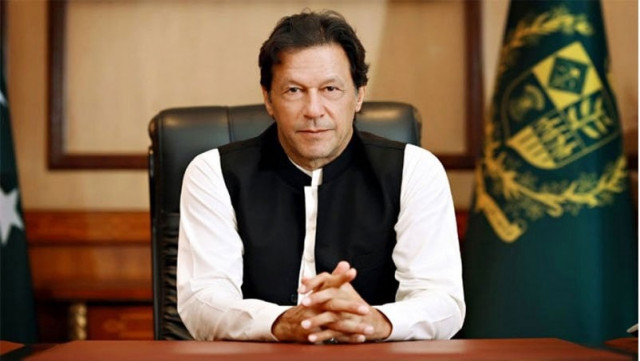Boosting economic diplomacy
It is time for Pakistan to look at issues through economic rather than security prism

Recently, the government set up two high-level economic coordination forums – the Economic Outreach Apex Committee and Coordination Group and the Economic Outreach Apex Committee.
The prime minister will head the former forum while Dr Moeed Yusuf, PM’s Special Assistant on National Security, will lead the latter.
It is not yet clear how the role of the coordination group will be different from that of the longstanding constitutional body, the National Economic Council (NEC) or the National Development Council (NDC), set up by the prime minister in June 2019.
The focus of this article is on the Economic Outreach Apex Committee whose role was explained by the prime minister as being a forum for promoting economic diplomacy, improving bilateral relations and attracting greater foreign investment.
While economic diplomacy may be a relatively new concept in Pakistan, using economic and diplomatic resources in sync as tools to advance a country’s financial, political and strategic goals has been in practice for a long time.
Some countries such as Australia, Brazil, Canada and Mauritius strengthened their economic diplomacy through merging their trade and foreign ministries. Other nations, such as Turkey, created a separate unit in the office of the head of government.
Those countries which preferred to maintain the two traditional ministries of foreign affairs and commerce set up joint bodies to improve coordination between them. Pakistan seems to be following this model by setting up an outreach committee.
Whatever the approach, it is crucial that all the stakeholders wholeheartedly accept the initiative of promoting economic diplomacy to gain greater economic leverage.
Unless we have synergy, we will find it very difficult to meet challenges not only arising from the shifting world order, but also of the emergence of new international task forces and organisations.
One such organisation is the Financial Action Task Force (FATF), whose actions have had a substantial adverse impact on Pakistan’s economy. Although this task force is not based on any international law or covenant, its decisions have had a far-reaching impact on the economies of countries that fell afoul of any major powers.
According to newspaper reports (which quoted Foreign Minister Shah Mehmood Qureshi) being on the grey list costs about $10 billion to Pakistan’s economy. Indeed, the economic cost could be much higher if we relegate to the blacklist, which could make us an international pariah.
Also, it would debar us from accessing loans from multilateral organisations such as the International Monetary Fund (IMF).
Although FATF claims to be a technical forum which sets standards and helps in combating financial crimes, there is no denying that there is a strong political angle.
When the FTAF met from October 21-23, 2020, it acknowledged that Pakistan has now largely addressed 21 out of 27 action items.
Although it pointed out some deficiencies in the remaining six points which relate to investigation and prosecution of terrorism-related financing activities, it could have seen the glass half full as it did in the case of Iceland and Mongolia or as it did in the case of Pakistan in 2015.
Of the 39 FATF members, including 37 countries and two regional organisations, that voted on Pakistan’s progress, Pakistan has bilateral trade deals with only two, China and Malaysia.
The agreement with Malaysia is somewhat patchy, and one is in process with Turkey. These three votes have so far saved Pakistan from being pushed onto the blacklist. On the other hand, India has been entering into deeper trade and economic alliances with a majority of FTAF members, especially the Asia Pacific Group on Money Laundering, and thus has gained much more significant political influence as compared to Pakistan. As a result of its FTA with Asean countries, India’s trade with the bloc has grown to over $80 billion.
It is time Pakistan resets its trade policy and enters into bilateral agreements rather than seeking unilateral concessions, which give it no leverage. Such unilateral concessions, as the EU has currently extended to Pakistan, make us a client state dependent on largesse of the partner. This kind of trading arrangement gives the other partner all the leverage and none whatsoever to us.
Pakistan also needs to reset its diplomacy and look at issues through economic rather than security prism. We should find allies who would stand by us. Hopefully, the Economic Outreach Apex Committee would be able to move the country in that direction.
The writer has served as Pakistan’s ambassador to WTO and as FAO’s representative to the United Nations in Geneva
Published in The Express Tribune, October 26th, 2020.
Like Business on Facebook, follow @TribuneBiz on Twitter to stay informed and join in the conversation.



















COMMENTS
Comments are moderated and generally will be posted if they are on-topic and not abusive.
For more information, please see our Comments FAQ